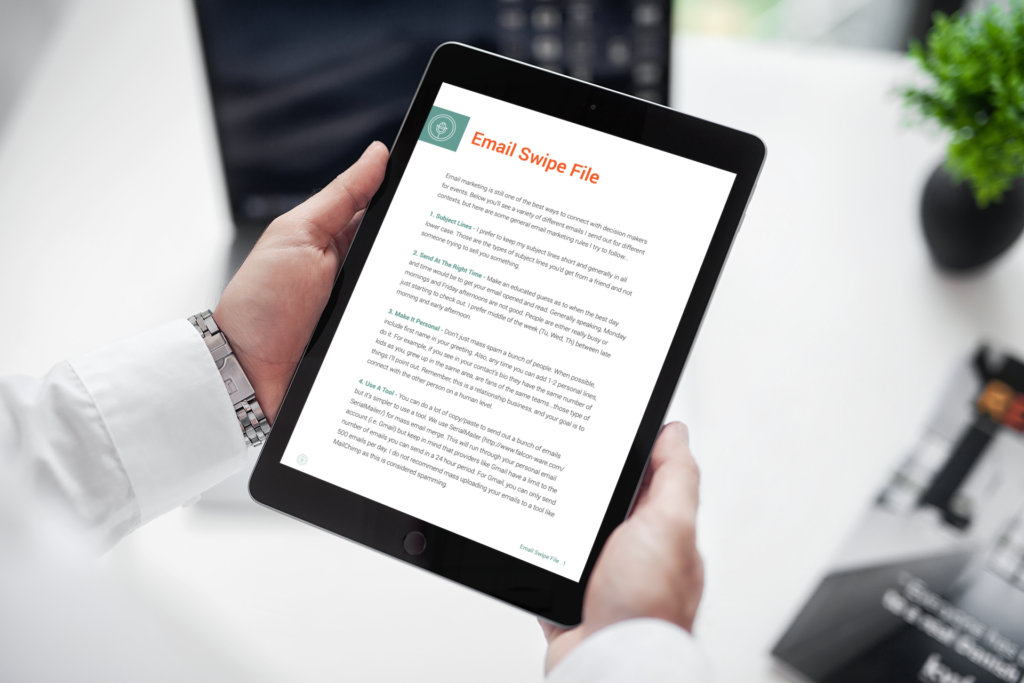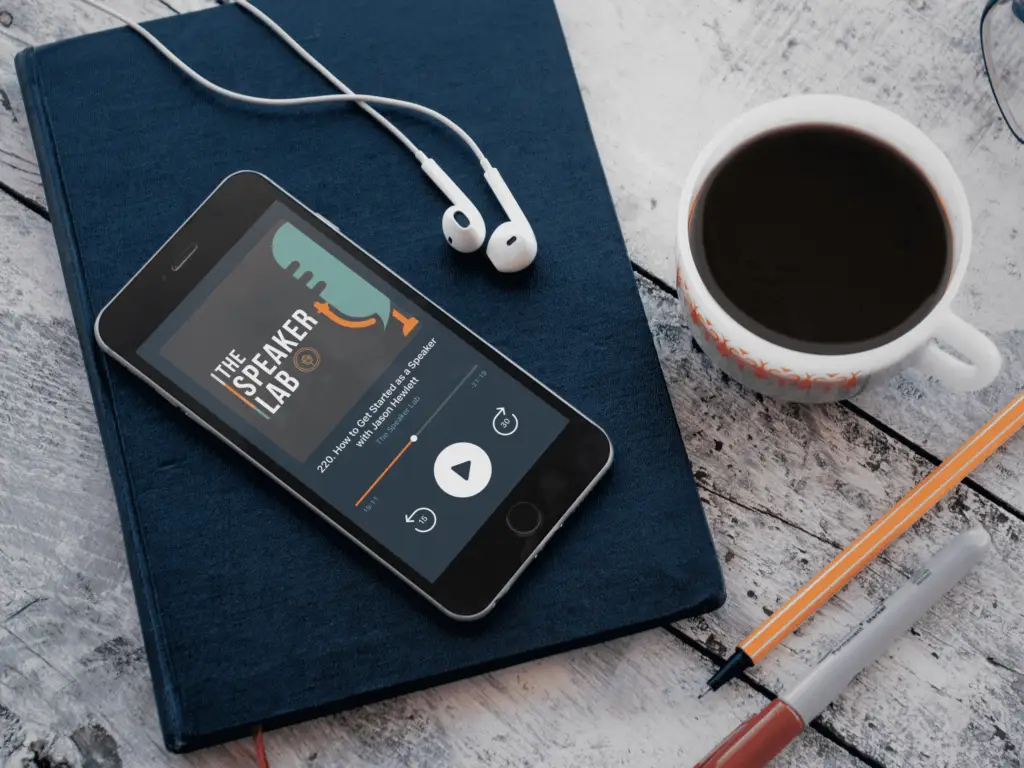Welcome to today’s Coaches Corner. I’m Maryalice Goldsmith, the director of Student Success, thrilled to be here with you. Today, our focus is on ChatGPT — an increasingly popular topic. It’s not GBT as I initially thought, but rather GPT, generating a lot of buzz. The big question: should speakers be using it for their talks? Joining me today is Coach Jeremy Rochford. Welcome! How are you?
Jeremy Rochford:
Fantastic, thank you for having me. It’s a fantastic topic to cover, and I’m glad we’re delving into it.
Maryalice Goldsmith:
Absolutely. It stemmed from a recent one-on-one, and we both felt it was a must for the Coaches Corner. The trend’s undeniable and worth discussing.
What do these letters stand for? Chat Generative Pre-trained Transformer—representing a natural language processing AI tool, enabling human-like conversations and multifaceted tasks, from answering questions to crafting essays and coding.
It’s a powerful tool, yet we must ponder its positive and negative impacts, especially for speakers. Jeremy, why is it crucial for them to comprehend ChatGPT?
Why should you know what ChatGPT is?
Jeremy Rochford:
Its permanence in the intellectual property landscape is key. Avoiding it won’t serve speakers well. Used appropriately, it streamlines tasks. But grasping its limits is equally vital.
Maryalice Goldsmith:
Absolutely. While it’s trendy, exploration is prudent, given its relevancy. It’s not just the future—it’s now. And for all entrepreneurs, not just speakers. How can it empower speakers when used effectively?
How can you empower yourself to use ChatGPT?
Jeremy Rochford:
Drawing from personal experience, it’s a conversation starter. I often find myself more inspired when discussing or debating a topic. ChatGPT allows banter, questions, and responses, triggering creativity. Using it as a starting point is crucial—it jumpstarts the initial draft.
Maryalice Goldsmith:
Agreed. It’s a powerful tool for organizing thoughts and easing the creation process. Converting ideas into tangible content can be challenging, and here, ChatGPT’s role becomes pivotal. However, it’s equally essential to maintain confidence in your unique voice and audience.
This is something we dive into straight off the bat in module one. The challenge lies when it might become a drawback or a more demanding aspect for business owners or speakers who lack a firm grasp of their content and their specific industry.
Jeremy Rochford:
I’d like to add to that, emphasizing not just your content but understanding your audience. As far as I know currently, AI reacts based on data. It excels in providing concise, crystallized summaries. However, it lacks the ability to comprehend the human condition. It may identify popular terms, but it can’t discern the nuances that might be sensitive or triggering to specific groups. For instance, in certain communities, the term ‘Asperger’s’ might provoke strong reactions, while in others, it might not. Recognizing these differences in your audience is critical. Failure to do so might lead to unintentional controversy and participation in cancel culture. AI’s limitations lie in its non-human nature, at least for now.
Maryalice Goldsmith:
Absolutely. You’ve touched on a critical point. It’s not human. We are. For a human entrepreneur navigating the business landscape, it could indeed complicate matters if all the pieces of the business puzzle aren’t clear. If you’re still seeking your voice, it’s vital to explore that internally before seeking it in a machine.
Jeremy Rochford:
For me, our discussion began by observing patterns. An individual’s isolated experience with ChatGPT might be dismissed, but when these patterns emerge—such as drastically altered content—it raises eyebrows. This conversation was sparked by a student’s request for tips on memorizing a keynote. I suggested looking at it as a collection of mini-conversations from one’s life. Often, our key points have been shared among friends or passionately discussed with others, demystifying the need to memorize the entire 45 minutes.
However, the response was unexpected. They desired ‘ninja tricks.’ It’s like offering the basics, and they’re asking for top-tier expertise. It led me to reconsider my approach, wondering if I should convey the same idea differently.
Maryalice Goldsmith:
Like the top-tier ninja moves.
Jeremy Rochford:
Exactly. I gave the bottom-shelf version, and they were looking for the top-shelf version. It made me ponder if a different explanation was needed. Then, reviewing the student’s speech, I noticed some peculiar elements, and as some may know, I do have an eye for peculiarities.
When something strikes me as peculiar, it’s like, Okay, that’s interesting. I asked her a few questions, and her response was, I don’t know, that’s what the computer said. It was a eureka moment. What do you mean, that’s what the computer said? She explained she used ChatGPT to draft the speech and was struggling to memorize it. That’s the issue—when the words and feelings aren’t truly yours.
I tried to explain it this way: if you have a child needing an IEP and you had to fight for support, would you just read off a checklist? You know your child’s struggles without needing a list. In the same vein, we are the authorities on our speeches, the curators of our content. We should know it thoroughly because that’s our expertise, what we’re compensated for.
Maryalice Goldsmith:
Absolutely.
Jeremy Rochford:
So, using ChatGPT to create a speech without understanding the audience, their psychographics, demographics, it’s akin to someone doing your homework. Then, when asked to explain the solution, you’re unable. It’s like saying, Just show the work, but failing to comprehend it. Chat GPT can initiate the conversation, but as creators, we must conclude it. Take what it provides and mold it for our audience. Speaking as someone who’s lost 200 pounds, I’d talk to overweight individuals differently than a personal trainer would. As a parent of children on the spectrum, my approach would differ from that of a mental health professional. And that’s something ChatGPT can’t replicate at this time.
Maryalice Goldsmith:
Indeed, so many crucial points. Let’s fast forward a bit and then circle back to some best practices. We’re not singling out any specific student here. There have been multiple stories like this.
Jeremy Rochford:
Numerous students.
Maryalice Goldsmith:
Yeah.
Jeremy Rochford:
To our students, please don’t feel isolated. You represent a pattern, and…
Maryalice Goldsmith:
We appreciate all of you. This is what occurs when something becomes a trend. We, as coaches, notice these patterns and aim to offer better guidance to our students in managing these situations. That’s why we’re here today.
Jeremy Rochford:
It’s akin to Taylor Swift, right? She’s had several albums before this, and now everyone’s catching up.
Maryalice Goldsmith:
It’s because of football.
Jeremy Rochford:
If time allows, this might not be.
Learn How You Could Get Your First (Or Next) Paid Speaking Gig — Guaranteed
We receive thousands of applications every day, but we only work with the top 5% of speakers.
Book a FREE call with our team to get started — you’ll learn why the vast majority of our students start booking paid speaking gigs even before they finish our program.
How do you leverage what’s trending?
Maryalice Goldsmith:
I’m just teasing. I’m just teasing. Alright, you’ve highlighted a crucial point about what’s trending—everyone hopping on the bandwagon, assuming it’s incredibly beneficial. But let’s discuss how speakers should exercise caution with ChatGPT and why. One aspect we’ve noticed, with students using ChatGPT to compose their speeches, is an impostor syndrome creeping in. They end up with ten pages of text that they struggle to emotionally or mentally connect with because it’s not truly their words. Practicing and learning from this can lead to a disconnect and heighten feelings of impostor syndrome. Let’s delve deeper into that.
Jeremy Rochford:
Yeah, I’ll approach this from a different angle, but hopefully, it addresses it. In my 15 years of ghostwriting, I always strive to mirror the voice of the person I’m writing for. If I don’t, it allows them to interject, ‘I wouldn’t say it like this,’ opening the discussion for their input. The crucial thing here is they don’t have a blank page anymore. If ChatGPT helps craft your initial speech, I’d strongly advise when met with, ‘I wouldn’t say it like that,’ to ask, ‘How would you say it?’ You’ve progressed significantly using ChatGPT, but you’re not entirely reliant on it. This approach can help combat impostor syndrome. Use ChatGPT as a foundation and then infuse it with your own words, style, and unique expression, much like a musician using familiar chords but creating their own chart-topping hit every year.
This isn’t just a best practice; it’s a way to sidestep feeling like an impostor because you’ve stamped it with your unique identity. But things derail if you treat it as the ultimate source without infusing it with your essence. This applies to other applications as well, such as EPS, bios, and particularly in email sequences. ChatGPT has a transformative impact on online marketing, much like how the iPhone revolutionized the music industry. But this business is built on relationships, and you must personalize those words. How you speak to an executive differs greatly from how you communicate with a PTA member. Random marketing copy won’t nurture relationships.
This ties into what we cover in module four. It’s a relationship business, and relationships have distinct expectations. Mass emailing leads lacks the opportunity to build that relationship. ChatGPT initiates the conversation, but you must complete it by adding your unique touch.
Maryalice Goldsmith:
Absolutely. Because in our talk creation template, we stress the concept of engaging in a conversation with your audience rather than just speaking or preaching to them. Engaging involves emotions, feelings, and mastering the stage, which is a distinct skill. If you can’t connect with the words emotionally, struggle to memorize or emotionally connect with them, sharing those words on stage becomes a challenge. Human-to-human relationships sense authenticity, and your audience will know if you’re genuine or not.
Entering the stage with any level of impostor syndrome makes selling your talk incredibly challenging. That connection, both with the audience and the intended impact, becomes an uphill battle. It’s not impossible, but it’s significantly challenging compared to someone who truly embodies what they’re talking about. Their essence resonates in every word, creating a profound connection with the audience. Those connections are vital when commanding the stage. Using ChatGPT without infusing yourself into the content can hinder this critical connection to the words and the audience.
Confidence is key when facing a stage with the intent to make an impact. Relying solely on ChatGPT for impactful words is a major risk. Impostor syndrome is prevalent among our students, and considering public speaking as the number one fear globally, imagine facing that fear while feeling disconnected from the words you’re about to share. The impact is compromised, and in the speaking business, closing gigs becomes challenging without that emotional connection.
Jeremy Rochford:
Absolutely. We emphasize the importance of words—a significant aspect I work on with students. Finding the right words for your speech, integrating them into your vocabulary, is pivotal. Personally, I perceive everything as sales. When engaging with potential business partners, they’re already inclined to do business. I focus on educating them on why I’m the best choice. If I resort to generic internet scripts, I become no different than a door-to-door salesman. Using personal, relevant information can be far more impactful than reciting statistics from ChatGPT.
Think about it—quoting Wikipedia can leave people skeptical. It’s a double-edged sword, much like a treadmill at home. You can use it to improve daily or turn it into a clothes hanger worth $1,000.
Maryalice Goldsmith:
Precisely. The power lies in how you utilize it. You have the ability to elevate or let it remain idle, unused.
The significant takeaway and caution we impart to our speakers regarding ChatGPT is that it’s acceptable to use it—most of us have—but the critical factor is infusing your voice into it. While it can spark creative genius, it’s not a plug-and-play solution. It’s about dissecting what it generates and molding the wording to genuinely represent your voice, your desired impact, and to authentically resonate with your audience. Authenticity is crucial for success as a speaker.
For example, establishing that authentic connection with your audience is pivotal.
Jeremy Rochford:
It extends beyond ChatGPT, but it strongly emphasizes this point. Weekly, I encounter individuals questioning the overdone nature of speaking on business and leadership. But every year, new churches with age-old messages continue to thrive. It emphasizes the messenger as much as the message.
Maryalice Goldsmith:
Absolutely.
Jeremy Rochford:
Speakers breathe life into their messages. If someone seeks facts, they’ll Google them. But when they engage with you, it’s for your unique perspective on the topic. Recognize your value in that.
Absolutely, I’m not dismissing the use of ChatGPT. But I stress its appropriate use. It’s like the inventor of Coca-Cola having moderation in his own consumption. ChatGPT has its place in the creative process, akin to moderation in our habits.
Maryalice Goldsmith:
Indeed. While the caution is vital, there are notable benefits for speakers, entrepreneurs, and more. For research, it offers step-by-step, detailed results. It’s a great source of inspiration, aiding in kick-starting the language for talks or content creation. Additionally, there’s Canva AI for generating slides, which, though requiring creative tweaking, can be a useful tool. Integrating it into email outreach, as demonstrated by Sam Richter with the Intel Engine, aids in language authenticity and accuracy in shared information. Lastly, do you see any other ways it could be beneficial?
What other ways is ChatGPT useful?
Jeremy Rochford:
The way I see it, AI is akin to the industrial revolution for entrepreneurs, marking a turning point in history. Looking back in 25 years, this might be seen as the catalyst for so much progress. The key takeaway from this conversation is advocacy for AI’s potential. But, akin to a teenager learning to drive, there’s both the promise of a moving car and the risks. It’s about respecting its benefits while remaining cautious about the potential drawbacks.
ChatGPT, for instance, typically draws from information up to around 2020 or 2021. It’s a brilliant tool, but cross-checking with more recent data through a quick Google search is always a good practice. It’s what I call the writer’s blockbuster. When I’m at a loss for content, I turn to it for inspiration. Sometimes, disagreement sparks my best ideas. It’s like a cure for the curse of knowledge that many experts face—it draws out what we know inside but might overlook.
Maryalice Goldsmith:
In summary, the verdict on ChatGPT: use it for knowledge, inspiration, and diverse ideas. However, don’t rely on it to write your entire speech or to be the sole voice of your brand. It’s a bot, not a human; it won’t capture the essence of your brand like you can. It’s crucial to input your essence into every line, ensuring it truly represents you.
As technology evolves at an astounding pace, the specifics may change, but the broader context remains. AI, of which ChatGPT is a part, is leading the way and will continue to shape our approach to such tools.
There will be others, an AI, I think it’s called, right?
Find Out Exactly How Much You Could Make As a Paid Speaker
Use The Official Speaker Fee Calculator to tell you what you should charge for your first (or next) speaking gig — virtual or in-person!
What about the rest of AI tech?
Jeremy Rochford:
Yeah, same caution with all of them. Make sure you know what you’re getting. Make sure you know the limitations. Additionally, make sure that you’re still the adult in the room with the conversation, but also embrace it. Appreciate how much this is going to make life easier and for those who have already adapted to it, how much it has made life easier. But, yeah, we’re pro ChatGPT/AI over here. Just as long as we use it appropriately.
Maryalice Goldsmith:
Yeah, it’s a great conversation, I think, having these conversations with our students. If you’re not a student, come on over and be a student because we’ll have these conversations with you as well. But when we start to see students struggling to take ninja approaches to memorizing a speech, and it’s still not ninja enough, we know there’s a red flag in the room, and so we know it’s something that we want to talk about and address. This is really an important topic. And yeah, go have fun with Chat GPT and OpenAI and see how it can really benefit your life and make your copy more efficient. Copy is no joke, right? It’s challenging for a lot of people, but always, always honor your voice and the impact you want to make with your words. That’s mission critical.
So, Jeremy, you’re awesome. Love doing these with you.
Jeremy Rochford:
You’re awesome. I mean, this is all awesome. Everything is awesome.
Maryalice Goldsmith:
You gotta love it. Thank you so much for spending this time with us, and we hope you go explore ChatGPT. I always want to say B, but it’s not. It’s P. And OpenAI. There are a lot of different apps out there you can go check out. And again, just use it wisely, and I’m sure it will make a great impact. If you are a student of The Speaker Lab, we appreciate you. If you’re not and want to be, definitely come on over and check us out at thespeakerlab.com. Book a strategy call, and maybe we’ll be on a call with you one-on-one, talking about how to best use GPT for your speeches.
Jeremy Rochford:
There’s no reason not to join. If you agree with me, come on the other side. We can talk about it. However, if you disagree with me, join just to argue. It’s a good time.
Maryalice Goldsmith:
Jeremy likes a good, healthy argument. I can’t even imagine that, but all right, everybody, have an awesome day. Thank you so much.



